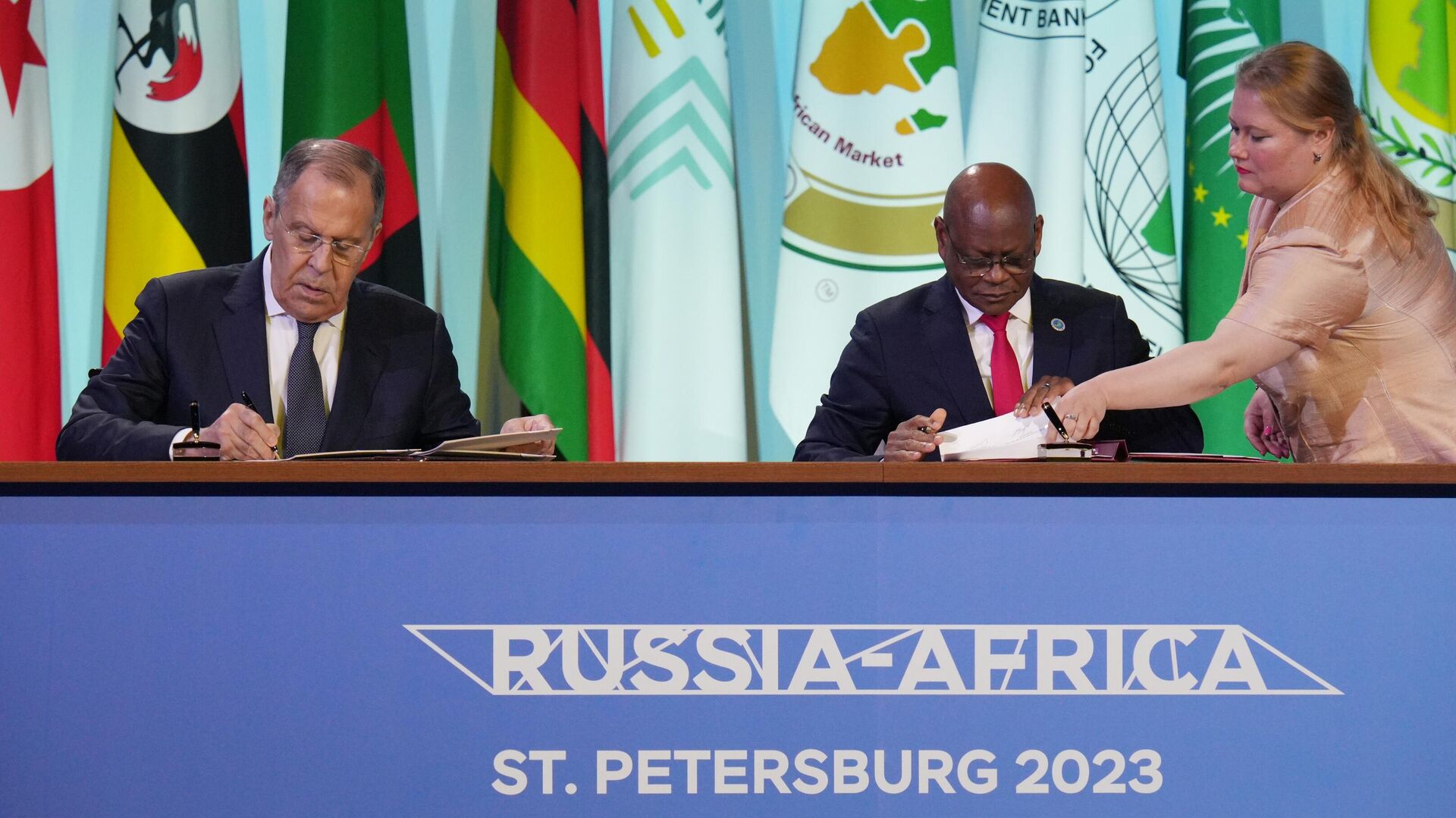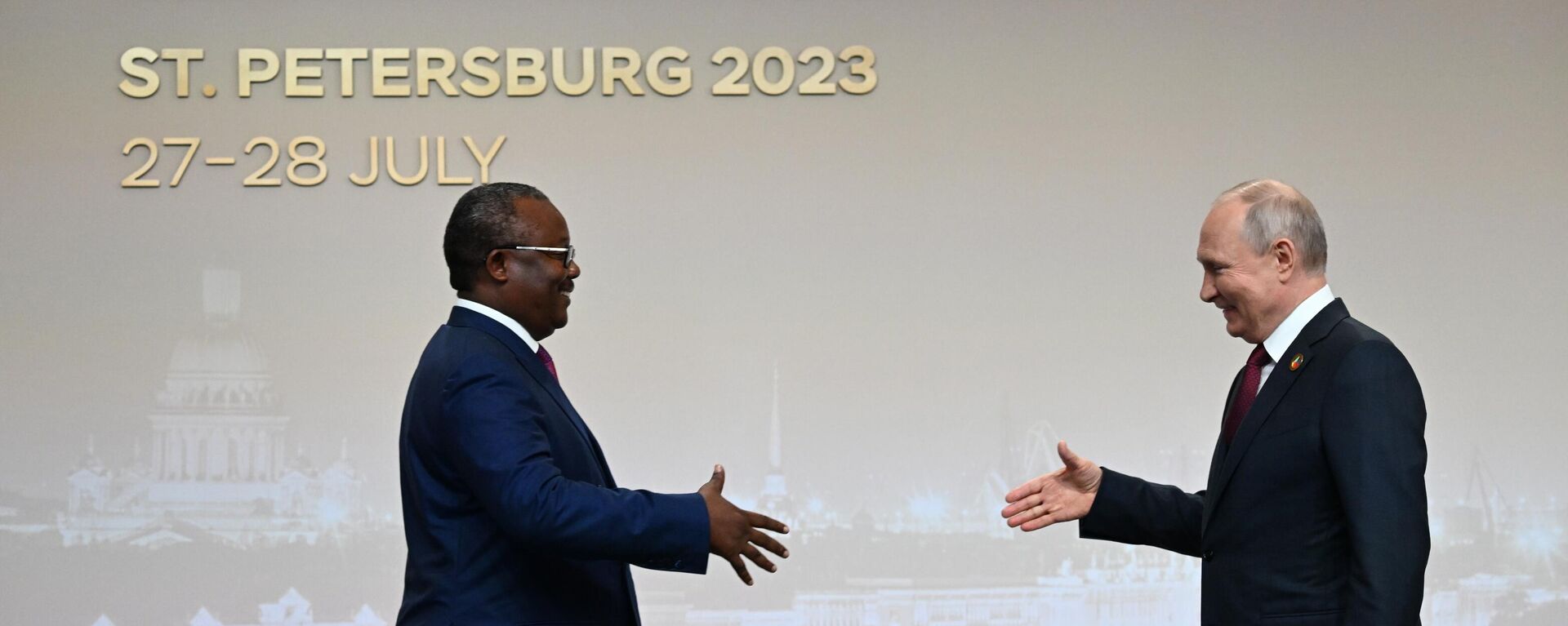https://sputnikglobe.com/20230728/why-forgiving-african-debts-could-be-positive-payoff-for-russia-1112228049.html
Why Forgiving African Debts Could Be 'Positive' Payoff for Russia
Why Forgiving African Debts Could Be 'Positive' Payoff for Russia
Sputnik International
Russian President Vladimir Putin has announced this week that Moscow is going to help African states deal with their external debt problem. 28.07.2023, Sputnik International
2023-07-28T19:13+0000
2023-07-28T19:13+0000
2023-07-28T19:13+0000
world
russia
russia-africa summit 2023
vladimir putin
debt
https://cdn1.img.sputnikglobe.com/img/07e7/07/1c/1112230391_0:115:3234:1934_1920x0_80_0_0_ad88daf8b52b959507b4ed531c498376.jpg
Speaking at the Russia-Africa Summit in St. Petersburg, Putin said that the Russian government wrote off $23 billion in debt to African countries, and that Moscow is going to provide around $90 million as debt relief to these nations.Commenting on this event, Russian political scientist and HSE professor Dmitry Evstafiev told Sputnik that the colossal collective external debt of African countries ultimately does not impact the continent’s development, since most of these nations simply do not pay their debts.He did note that, in light of certain factors that emerged in Africa – specifically, an “external financial aid cargo cult” of sorts and the inability to develop without outside stimuli – it seems unlikely that African countries were ever going to repay the debt that Russia ultimately decided to write off.“But we should shift towards financial-investment relations with African states, which would fit into the ‘investments and loans in exchange for permission to conduct economic activity’ formula,” Evstafiev suggested.Evstafiev also spotlighted the difference in the respective approaches adopted by Russia, the United States and China towards African states.Washington's Africa policy always relied on the presence of transnational companies whose focus on making a profit does not bode well for the social and economic development of African countries.While China’s approach is “more democratic” than the one adopted by the US, it relies on “exterritorial economic activity” in African countries, with the areas where Chinese economic projects on the African continent are being conducted, for the lack of a better term, end up “removed from national sovereignty,” argued Evstafied.Meanwhile, the approach announced by Vladimir Putin at the Russia-Africa Summit essentially amounts to Russia treating African countries as sovereign states.“It is about their development as the integrity of social-economic, social-political systems,” Evstafiev said, referring to the African countries Russia works with. “And in that regard, we have a serious competitive advantage over others.”
https://sputnikglobe.com/20230728/russias-partnership-with-africa-contrasts-with-western-colonialism-1112216285.html
russia
Sputnik International
feedback@sputniknews.com
+74956456601
MIA „Rossiya Segodnya“
2023
News
en_EN
Sputnik International
feedback@sputniknews.com
+74956456601
MIA „Rossiya Segodnya“
Sputnik International
feedback@sputniknews.com
+74956456601
MIA „Rossiya Segodnya“
russia africa cooperation, african countries debt, russia africa debt, russia-africa summit, russia africa trade relations
russia africa cooperation, african countries debt, russia africa debt, russia-africa summit, russia africa trade relations
Why Forgiving African Debts Could Be 'Positive' Payoff for Russia
Russian President Vladimir Putin has announced this week that Moscow is going to help African states deal with their external debt problem.
Speaking at the Russia-Africa Summit in St. Petersburg, Putin said that the Russian government
wrote off $23 billion in debt to African countries, and that Moscow is going to provide around $90 million as debt relief to these nations.
Commenting on this event, Russian political scientist and HSE professor Dmitry Evstafiev told Sputnik that the colossal collective external debt of African countries ultimately does not impact the continent’s development, since most of these nations simply do not pay their debts.
He did note that, in light of certain factors that emerged in
Africa – specifically, an “external financial aid cargo cult” of sorts and the inability to develop without outside stimuli – it seems unlikely that African countries were ever going to repay the debt that Russia ultimately decided to write off.
“But we should shift towards financial-investment relations with African states, which would fit into the ‘investments and loans in exchange for permission to conduct economic activity’ formula,” Evstafiev suggested.
He added that this debt forgiveness announced by Putin – which Evstafiev described as “purchasing of an entry ticket into Africa in a new global state, of sorts” – is a “positive development.”
Evstafiev also spotlighted the difference in the respective approaches adopted by Russia, the United States and China towards African states.
Washington's Africa policy always relied on the presence of transnational companies whose focus on making a profit does not bode well for the social and economic development of African countries.
While China’s approach is “more democratic” than the one adopted by the US, it relies on “exterritorial economic activity” in African countries, with the areas where Chinese economic projects on the African continent are being conducted, for the lack of a better term, end up “removed from national sovereignty,” argued Evstafied.
Meanwhile, the approach announced by Vladimir Putin at the Russia-Africa Summit essentially amounts to Russia treating African countries as sovereign states.
“It is about their development as the integrity of social-economic, social-political systems,” Evstafiev said, referring to the African countries Russia works with. “And in that regard, we have a serious competitive advantage over others.”



